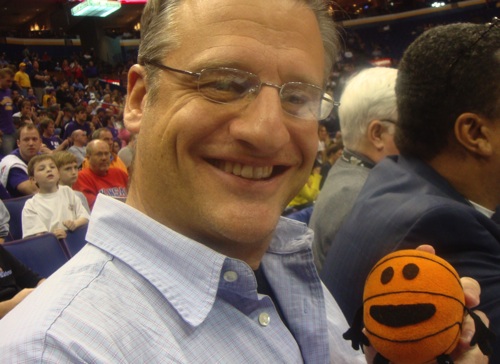
Unfortunately for me, much of my weekend has been spent dealing with Pete Thamel's article in
the New York Times concerning Eric Bledsoe's high school transcripts and coach association. When I first read the story on Friday night, I thought it was likely to be overblown by media folks (and it has) and seemed to contain very little mean in its chargrilled packaging. As the weekend has progressed, the last conclusion seems to have been confirmed as every reporter I have spoken with, both local and national, devalued the importance of the article, and most questioned the decision by the Times and Thamel to publish the story. Those most sympathetic to Pete simply said that there "wasn't really that much there" and those that were a bit more critical anonymously made statements such as "people think the Times' stories have more credibility because it is the Times. But that story was junk." Then there is CBS Sports.com's Gregg Doyel who has used Twitter to blast the Times and Thamel and has pointed out (in a very Doyelesque way) that they either needed to prove Bledsoe cheated "or just shaddup." It remains to be seen if the story is much ado about nothing, but what is clear is that Thamel's Friday night of Memorial Day Weekend Dump did not have the sizzle he might have hoped.
But as the weekend progressed, the question kept entering my mind,
how do stories like this begin and more importantly, why isnt the same light shone on the media that it does to coaches? The saga of the Eric Bledsoe story did not begin on Friday night. In fact, this is the culmination of nine months of detective work by a number of media sources, all of which led to the scant information produced in the Times article. It began in October, when sources have told me that Pat Forde of ESPN.com spent time "investigating and knocking on doors in Alabama, looking for dirt on Cousins and Bledsoe" while attending the SEC Media Day in Birmingham. Sources tell me that Forde contacted members of Cousins' family and attempted to look into the academic records of both players. Around that time, I was told that such an investigation and had taken place and that Forde was likely to produce a story for ESPN.com. Sources tell me this weekend that soon after this "investigation", ESPN.com pulled Pat Forde off of all Kentucky coverage and that the story then went nowhere. The New York Times picked up the investigation (and Pat Forde's close friend Pete Thamel began investigating), but nothing was written by Forde on that, or any other subject, about Kentucky.
When the Times story did come out, one could almost see the glee coming from the ESPN.com Louisville branch. Pat Forde tweeted it out immediately, then later sent out the Dana O'Neil-Forde followup. The next day he went even farther, sending out (for the first time I can ever remember) a local columnist (in this case John Clay's) article criticizing Calipari for the scandal (interestingly he didnt tweet out Clay's backing off of his earlier assertions in Monday's paper). It followed a general pattern that has become clear this year,
if it is anti-Calipari, Pat Forde is either behind it or will promote it. For the first few months of after Calipari was hired, Forde reported and commented on Calipari on every news outlet, blasting the hiring and his reputation as a whole. During that same time, he continued to also report on Rick Pitino, a business associate with whom he had written a book, and was bizarrely the investigative reporter on the Karen Sypher issue...a conflict of interest so brazen and blatant that it boggles the mind. After complaints, he was pulled off of both beats and has rarely commented directly on either man, resorting to passive-aggressive tweets at any point that Calipari can be criticized for anything.
Now none of this is to say that Pat Forde doesnt have the right to be anti-Calipari. He does. Most columnists like some guys and like others, and that is ok. But in Forde's case
his dislike is strong, not acknowledged publically and hypocritical to the highest degree. We often hear Calipari critics like Forde bring up John's past and thus suggest (as they did in the Times story) that his past implicates current guilt. But in so doing, why doesnt anyone critique the pasts of these writers? For instance,
why cant Pat Forde be honest about these truths?:
(1): Why not be honest about the fact that you have a business relationship with Rick Pitino and that his success helps your financial status with book sales. Nevertheless you continued to cover the Sypher trial, often taking up for Rick as if you were his own personal Baghdad Bob.
(2) Why not be honest about the fact that your dislike of Calipari and your relationship with Pitino caused ESPN to pull you off of Kentucky stories since the fall? Why not be honest about the fact that whereas you used to come to 8-10 UK games a year, last year in the most important season UK has had in a decade, you only came to 1?
(3) Why not be honest about the fact that as you question the ethical decisions of Calipari,
you have had ethical issues in your own career, causing what sources have told me are two suspensions from your old employer, the Courier Journal, one for a personal reason and one for turning over information to the NCAA about the Louisville Cardinals?
Oh you didnt know that one? Well Pat Forde, who maligns the ethics of coaches and athletes around the globe, has had
a serious ethical violation in his journalist past, being suspended without pay for a month from the Courier and taken off his column for a number of months, after he gave the NCAA information about a Louisville program (this incident is why I have always believed Pat to be pro-Pitino, not pro-Louisville). The incident is never discussed publically, but after doing some digging, I found Pat's response to it on
this message board:
Over a period of years, the newspaper was investigating major NCAA violations within the University of Louisville basketball program. I had helped out in the investigation, which ended with the program going on probation. Then we got word of some additional violations and the story was handed off to our excellent investigative staff. They worked the heck out of it and produced some good stuff, but couldn't nail down all the information. Some of that information was passed on directly to me. I, in turn, passed it along to our investigative folks -- and when some of it could not be verified, I passed it along to an NCAA source I had known to see if it was true. Hoping that it would come back to us and we'd get the story. Instead, the NCAA presented it to the university and said it came from me, which the university then took to the paper.
So I violated a serious tenet about taking in-house information out of house. Got suspended for two weeks and did not write a column for a few months. Some co-workers thought the punishment too severe, some thought it not severe enough. I had no problem with the decision and thought I was dealt with fairly by the executive editor, Bennie Ivory. It was a difficult time, including receiving death threats on my kids, by name, in un-stamped envelopes in my home mailbox. But I learned from it and got through it with the help of very supportive peers and superiors at The C-J. In the 10 years on the job before and 10 years after I have never again had my ethics called into question.
I don't know what "rumors" you've heard, but those are the facts.
Now that may be true. Maybe those are the "facts." But it seems to this blogger, that
Forde has been found guilty of a violation and says the rumors and innuendo about him are not true. That is interesting. Because when it comes to Calipari, who as of yet has not been found guilty of a violation, the rumors and innuendo are plenty persuasive to criticize the Coach and his character. Why the double-standard? Similarly, Mike Freeman of CBSSports.com is one of Calipari's harshest critics, recently calling him a "scumbag" on Twitter and saying he is "beyond sleazy." So one would expect Freeman to be squeaky clean himself, right? Well except the fact that he was fired from the Indianapolis Star in the early 2000s for lying on his resume and saying he had a degree from a college that he didnt complete. But hey, your own ethical problems of the past have no effect on your "holier than thou" criticism of others, do they?
I dont have a great deal of problem with the fact that Pete Thamel wrote the Bledsoe article in the NY Times. I think it is was published prematurely in order to attempt to beat out a competitor, had virtually no substance and was only written to try and create a tenuous connection to Calipari for sizzle value. But, thats what reporters do and ultimately, they are judged on their reporting work (in Thamel's case on this story, harshly). However
when it comes to those who pontificate, why arent they held to the same standard of those they judge? Why have ESPN and Forde never commented on the decision to pull him off of two major beats, both of which are in his home state and that he has spent over 15 year covering? How is it that Forde, Freeman or the countless other reporters (and do research and you will find more), who opine on Calipari and other coaches/players never have the mirror put back on them for the faults in their past? Neither Forde nor Freeman's transgressions necessarily make them bad people (and both are great writers), but doesnt it call into question their ability to render moral judgment on others?
All I want is honesty. I run a UK blog....I like UK...hope they win and root for the program. All of my writing should be read in that context. I consider myself objective, but am sure that my viewpoint is tailored through my individual bias. However at least I admit it.
Most "opinion columnists" have similar bias and other character flaws, but simply choose to deny it. Instead, they sit in judgment on high, with unearned moral superiority and set standards for others that they could never meet. There was a time that those columnists and writers got a pass because there was no other outlet to point out their hypocrisy. That time has passed and hopefully it will generate some honesty, where previously there was none.
 Unfortunately for me, much of my weekend has been spent dealing with Pete Thamel's article in the New York Times concerning Eric Bledsoe's high school transcripts and coach association. When I first read the story on Friday night, I thought it was likely to be overblown by media folks (and it has) and seemed to contain very little mean in its chargrilled packaging. As the weekend has progressed, the last conclusion seems to have been confirmed as every reporter I have spoken with, both local and national, devalued the importance of the article, and most questioned the decision by the Times and Thamel to publish the story. Those most sympathetic to Pete simply said that there "wasn't really that much there" and those that were a bit more critical anonymously made statements such as "people think the Times' stories have more credibility because it is the Times. But that story was junk." Then there is CBS Sports.com's Gregg Doyel who has used Twitter to blast the Times and Thamel and has pointed out (in a very Doyelesque way) that they either needed to prove Bledsoe cheated "or just shaddup." It remains to be seen if the story is much ado about nothing, but what is clear is that Thamel's Friday night of Memorial Day Weekend Dump did not have the sizzle he might have hoped.
But as the weekend progressed, the question kept entering my mind, how do stories like this begin and more importantly, why isnt the same light shone on the media that it does to coaches? The saga of the Eric Bledsoe story did not begin on Friday night. In fact, this is the culmination of nine months of detective work by a number of media sources, all of which led to the scant information produced in the Times article. It began in October, when sources have told me that Pat Forde of ESPN.com spent time "investigating and knocking on doors in Alabama, looking for dirt on Cousins and Bledsoe" while attending the SEC Media Day in Birmingham. Sources tell me that Forde contacted members of Cousins' family and attempted to look into the academic records of both players. Around that time, I was told that such an investigation and had taken place and that Forde was likely to produce a story for ESPN.com. Sources tell me this weekend that soon after this "investigation", ESPN.com pulled Pat Forde off of all Kentucky coverage and that the story then went nowhere. The New York Times picked up the investigation (and Pat Forde's close friend Pete Thamel began investigating), but nothing was written by Forde on that, or any other subject, about Kentucky.
When the Times story did come out, one could almost see the glee coming from the ESPN.com Louisville branch. Pat Forde tweeted it out immediately, then later sent out the Dana O'Neil-Forde followup. The next day he went even farther, sending out (for the first time I can ever remember) a local columnist (in this case John Clay's) article criticizing Calipari for the scandal (interestingly he didnt tweet out Clay's backing off of his earlier assertions in Monday's paper). It followed a general pattern that has become clear this year, if it is anti-Calipari, Pat Forde is either behind it or will promote it. For the first few months of after Calipari was hired, Forde reported and commented on Calipari on every news outlet, blasting the hiring and his reputation as a whole. During that same time, he continued to also report on Rick Pitino, a business associate with whom he had written a book, and was bizarrely the investigative reporter on the Karen Sypher issue...a conflict of interest so brazen and blatant that it boggles the mind. After complaints, he was pulled off of both beats and has rarely commented directly on either man, resorting to passive-aggressive tweets at any point that Calipari can be criticized for anything.
Now none of this is to say that Pat Forde doesnt have the right to be anti-Calipari. He does. Most columnists like some guys and like others, and that is ok. But in Forde's case his dislike is strong, not acknowledged publically and hypocritical to the highest degree. We often hear Calipari critics like Forde bring up John's past and thus suggest (as they did in the Times story) that his past implicates current guilt. But in so doing, why doesnt anyone critique the pasts of these writers? For instance, why cant Pat Forde be honest about these truths?:
(1): Why not be honest about the fact that you have a business relationship with Rick Pitino and that his success helps your financial status with book sales. Nevertheless you continued to cover the Sypher trial, often taking up for Rick as if you were his own personal Baghdad Bob.
(2) Why not be honest about the fact that your dislike of Calipari and your relationship with Pitino caused ESPN to pull you off of Kentucky stories since the fall? Why not be honest about the fact that whereas you used to come to 8-10 UK games a year, last year in the most important season UK has had in a decade, you only came to 1?
(3) Why not be honest about the fact that as you question the ethical decisions of Calipari, you have had ethical issues in your own career, causing what sources have told me are two suspensions from your old employer, the Courier Journal, one for a personal reason and one for turning over information to the NCAA about the Louisville Cardinals?
Oh you didnt know that one? Well Pat Forde, who maligns the ethics of coaches and athletes around the globe, has had a serious ethical violation in his journalist past, being suspended without pay for a month from the Courier and taken off his column for a number of months, after he gave the NCAA information about a Louisville program (this incident is why I have always believed Pat to be pro-Pitino, not pro-Louisville). The incident is never discussed publically, but after doing some digging, I found Pat's response to it on this message board:
Over a period of years, the newspaper was investigating major NCAA violations within the University of Louisville basketball program. I had helped out in the investigation, which ended with the program going on probation. Then we got word of some additional violations and the story was handed off to our excellent investigative staff. They worked the heck out of it and produced some good stuff, but couldn't nail down all the information. Some of that information was passed on directly to me. I, in turn, passed it along to our investigative folks -- and when some of it could not be verified, I passed it along to an NCAA source I had known to see if it was true. Hoping that it would come back to us and we'd get the story. Instead, the NCAA presented it to the university and said it came from me, which the university then took to the paper.
So I violated a serious tenet about taking in-house information out of house. Got suspended for two weeks and did not write a column for a few months. Some co-workers thought the punishment too severe, some thought it not severe enough. I had no problem with the decision and thought I was dealt with fairly by the executive editor, Bennie Ivory. It was a difficult time, including receiving death threats on my kids, by name, in un-stamped envelopes in my home mailbox. But I learned from it and got through it with the help of very supportive peers and superiors at The C-J. In the 10 years on the job before and 10 years after I have never again had my ethics called into question.
I don't know what "rumors" you've heard, but those are the facts.
Now that may be true. Maybe those are the "facts." But it seems to this blogger, that Forde has been found guilty of a violation and says the rumors and innuendo about him are not true. That is interesting. Because when it comes to Calipari, who as of yet has not been found guilty of a violation, the rumors and innuendo are plenty persuasive to criticize the Coach and his character. Why the double-standard? Similarly, Mike Freeman of CBSSports.com is one of Calipari's harshest critics, recently calling him a "scumbag" on Twitter and saying he is "beyond sleazy." So one would expect Freeman to be squeaky clean himself, right? Well except the fact that he was fired from the Indianapolis Star in the early 2000s for lying on his resume and saying he had a degree from a college that he didnt complete. But hey, your own ethical problems of the past have no effect on your "holier than thou" criticism of others, do they?
I dont have a great deal of problem with the fact that Pete Thamel wrote the Bledsoe article in the NY Times. I think it is was published prematurely in order to attempt to beat out a competitor, had virtually no substance and was only written to try and create a tenuous connection to Calipari for sizzle value. But, thats what reporters do and ultimately, they are judged on their reporting work (in Thamel's case on this story, harshly). However when it comes to those who pontificate, why arent they held to the same standard of those they judge? Why have ESPN and Forde never commented on the decision to pull him off of two major beats, both of which are in his home state and that he has spent over 15 year covering? How is it that Forde, Freeman or the countless other reporters (and do research and you will find more), who opine on Calipari and other coaches/players never have the mirror put back on them for the faults in their past? Neither Forde nor Freeman's transgressions necessarily make them bad people (and both are great writers), but doesnt it call into question their ability to render moral judgment on others?
All I want is honesty. I run a UK blog....I like UK...hope they win and root for the program. All of my writing should be read in that context. I consider myself objective, but am sure that my viewpoint is tailored through my individual bias. However at least I admit it. Most "opinion columnists" have similar bias and other character flaws, but simply choose to deny it. Instead, they sit in judgment on high, with unearned moral superiority and set standards for others that they could never meet. There was a time that those columnists and writers got a pass because there was no other outlet to point out their hypocrisy. That time has passed and hopefully it will generate some honesty, where previously there was none.
Unfortunately for me, much of my weekend has been spent dealing with Pete Thamel's article in the New York Times concerning Eric Bledsoe's high school transcripts and coach association. When I first read the story on Friday night, I thought it was likely to be overblown by media folks (and it has) and seemed to contain very little mean in its chargrilled packaging. As the weekend has progressed, the last conclusion seems to have been confirmed as every reporter I have spoken with, both local and national, devalued the importance of the article, and most questioned the decision by the Times and Thamel to publish the story. Those most sympathetic to Pete simply said that there "wasn't really that much there" and those that were a bit more critical anonymously made statements such as "people think the Times' stories have more credibility because it is the Times. But that story was junk." Then there is CBS Sports.com's Gregg Doyel who has used Twitter to blast the Times and Thamel and has pointed out (in a very Doyelesque way) that they either needed to prove Bledsoe cheated "or just shaddup." It remains to be seen if the story is much ado about nothing, but what is clear is that Thamel's Friday night of Memorial Day Weekend Dump did not have the sizzle he might have hoped.
But as the weekend progressed, the question kept entering my mind, how do stories like this begin and more importantly, why isnt the same light shone on the media that it does to coaches? The saga of the Eric Bledsoe story did not begin on Friday night. In fact, this is the culmination of nine months of detective work by a number of media sources, all of which led to the scant information produced in the Times article. It began in October, when sources have told me that Pat Forde of ESPN.com spent time "investigating and knocking on doors in Alabama, looking for dirt on Cousins and Bledsoe" while attending the SEC Media Day in Birmingham. Sources tell me that Forde contacted members of Cousins' family and attempted to look into the academic records of both players. Around that time, I was told that such an investigation and had taken place and that Forde was likely to produce a story for ESPN.com. Sources tell me this weekend that soon after this "investigation", ESPN.com pulled Pat Forde off of all Kentucky coverage and that the story then went nowhere. The New York Times picked up the investigation (and Pat Forde's close friend Pete Thamel began investigating), but nothing was written by Forde on that, or any other subject, about Kentucky.
When the Times story did come out, one could almost see the glee coming from the ESPN.com Louisville branch. Pat Forde tweeted it out immediately, then later sent out the Dana O'Neil-Forde followup. The next day he went even farther, sending out (for the first time I can ever remember) a local columnist (in this case John Clay's) article criticizing Calipari for the scandal (interestingly he didnt tweet out Clay's backing off of his earlier assertions in Monday's paper). It followed a general pattern that has become clear this year, if it is anti-Calipari, Pat Forde is either behind it or will promote it. For the first few months of after Calipari was hired, Forde reported and commented on Calipari on every news outlet, blasting the hiring and his reputation as a whole. During that same time, he continued to also report on Rick Pitino, a business associate with whom he had written a book, and was bizarrely the investigative reporter on the Karen Sypher issue...a conflict of interest so brazen and blatant that it boggles the mind. After complaints, he was pulled off of both beats and has rarely commented directly on either man, resorting to passive-aggressive tweets at any point that Calipari can be criticized for anything.
Now none of this is to say that Pat Forde doesnt have the right to be anti-Calipari. He does. Most columnists like some guys and like others, and that is ok. But in Forde's case his dislike is strong, not acknowledged publically and hypocritical to the highest degree. We often hear Calipari critics like Forde bring up John's past and thus suggest (as they did in the Times story) that his past implicates current guilt. But in so doing, why doesnt anyone critique the pasts of these writers? For instance, why cant Pat Forde be honest about these truths?:
(1): Why not be honest about the fact that you have a business relationship with Rick Pitino and that his success helps your financial status with book sales. Nevertheless you continued to cover the Sypher trial, often taking up for Rick as if you were his own personal Baghdad Bob.
(2) Why not be honest about the fact that your dislike of Calipari and your relationship with Pitino caused ESPN to pull you off of Kentucky stories since the fall? Why not be honest about the fact that whereas you used to come to 8-10 UK games a year, last year in the most important season UK has had in a decade, you only came to 1?
(3) Why not be honest about the fact that as you question the ethical decisions of Calipari, you have had ethical issues in your own career, causing what sources have told me are two suspensions from your old employer, the Courier Journal, one for a personal reason and one for turning over information to the NCAA about the Louisville Cardinals?
Oh you didnt know that one? Well Pat Forde, who maligns the ethics of coaches and athletes around the globe, has had a serious ethical violation in his journalist past, being suspended without pay for a month from the Courier and taken off his column for a number of months, after he gave the NCAA information about a Louisville program (this incident is why I have always believed Pat to be pro-Pitino, not pro-Louisville). The incident is never discussed publically, but after doing some digging, I found Pat's response to it on this message board:
Over a period of years, the newspaper was investigating major NCAA violations within the University of Louisville basketball program. I had helped out in the investigation, which ended with the program going on probation. Then we got word of some additional violations and the story was handed off to our excellent investigative staff. They worked the heck out of it and produced some good stuff, but couldn't nail down all the information. Some of that information was passed on directly to me. I, in turn, passed it along to our investigative folks -- and when some of it could not be verified, I passed it along to an NCAA source I had known to see if it was true. Hoping that it would come back to us and we'd get the story. Instead, the NCAA presented it to the university and said it came from me, which the university then took to the paper.
So I violated a serious tenet about taking in-house information out of house. Got suspended for two weeks and did not write a column for a few months. Some co-workers thought the punishment too severe, some thought it not severe enough. I had no problem with the decision and thought I was dealt with fairly by the executive editor, Bennie Ivory. It was a difficult time, including receiving death threats on my kids, by name, in un-stamped envelopes in my home mailbox. But I learned from it and got through it with the help of very supportive peers and superiors at The C-J. In the 10 years on the job before and 10 years after I have never again had my ethics called into question.
I don't know what "rumors" you've heard, but those are the facts.
Now that may be true. Maybe those are the "facts." But it seems to this blogger, that Forde has been found guilty of a violation and says the rumors and innuendo about him are not true. That is interesting. Because when it comes to Calipari, who as of yet has not been found guilty of a violation, the rumors and innuendo are plenty persuasive to criticize the Coach and his character. Why the double-standard? Similarly, Mike Freeman of CBSSports.com is one of Calipari's harshest critics, recently calling him a "scumbag" on Twitter and saying he is "beyond sleazy." So one would expect Freeman to be squeaky clean himself, right? Well except the fact that he was fired from the Indianapolis Star in the early 2000s for lying on his resume and saying he had a degree from a college that he didnt complete. But hey, your own ethical problems of the past have no effect on your "holier than thou" criticism of others, do they?
I dont have a great deal of problem with the fact that Pete Thamel wrote the Bledsoe article in the NY Times. I think it is was published prematurely in order to attempt to beat out a competitor, had virtually no substance and was only written to try and create a tenuous connection to Calipari for sizzle value. But, thats what reporters do and ultimately, they are judged on their reporting work (in Thamel's case on this story, harshly). However when it comes to those who pontificate, why arent they held to the same standard of those they judge? Why have ESPN and Forde never commented on the decision to pull him off of two major beats, both of which are in his home state and that he has spent over 15 year covering? How is it that Forde, Freeman or the countless other reporters (and do research and you will find more), who opine on Calipari and other coaches/players never have the mirror put back on them for the faults in their past? Neither Forde nor Freeman's transgressions necessarily make them bad people (and both are great writers), but doesnt it call into question their ability to render moral judgment on others?
All I want is honesty. I run a UK blog....I like UK...hope they win and root for the program. All of my writing should be read in that context. I consider myself objective, but am sure that my viewpoint is tailored through my individual bias. However at least I admit it. Most "opinion columnists" have similar bias and other character flaws, but simply choose to deny it. Instead, they sit in judgment on high, with unearned moral superiority and set standards for others that they could never meet. There was a time that those columnists and writers got a pass because there was no other outlet to point out their hypocrisy. That time has passed and hopefully it will generate some honesty, where previously there was none.
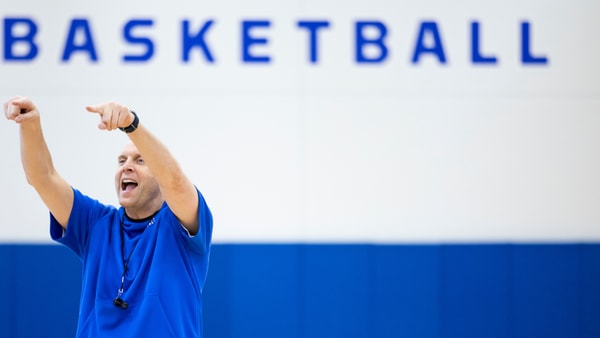
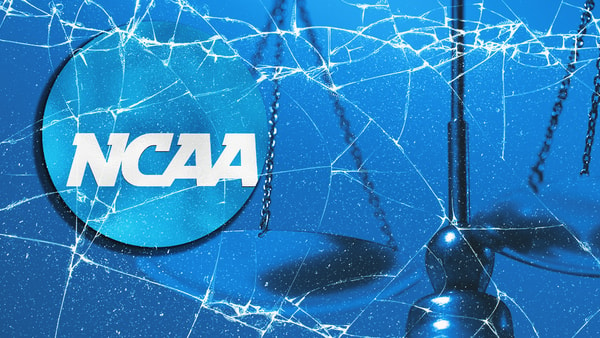
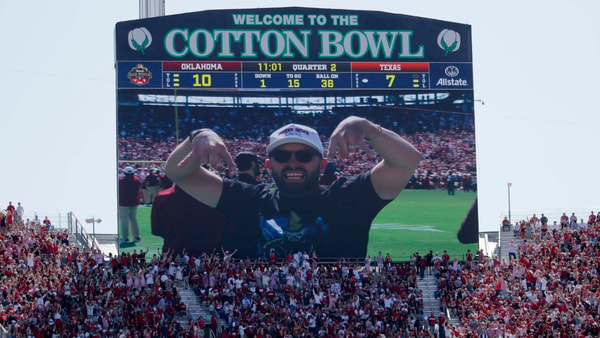
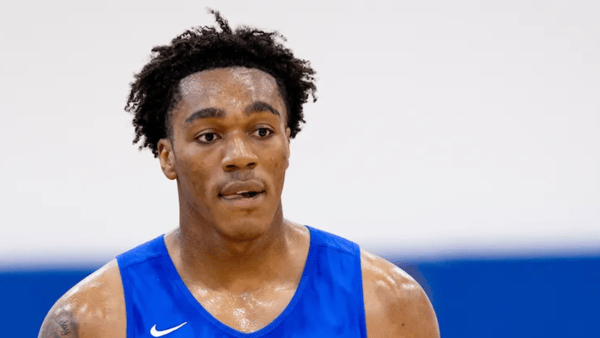
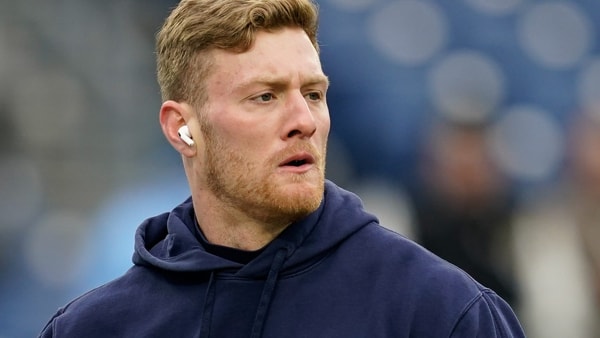
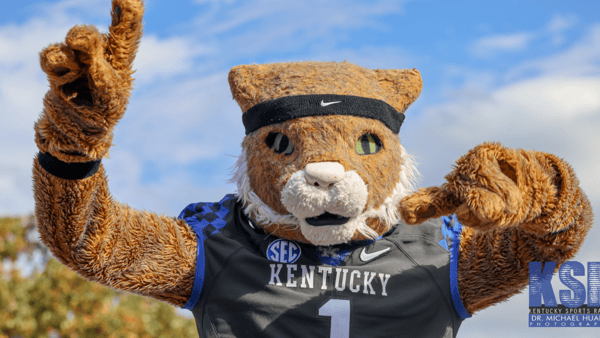
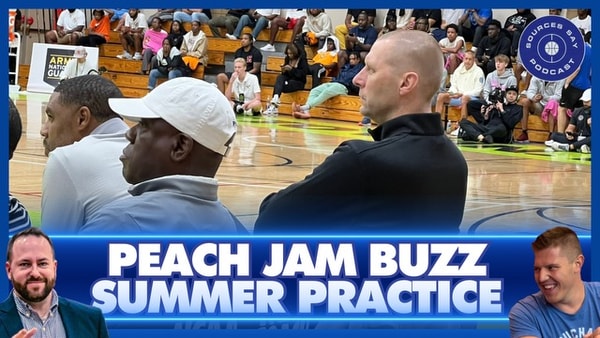
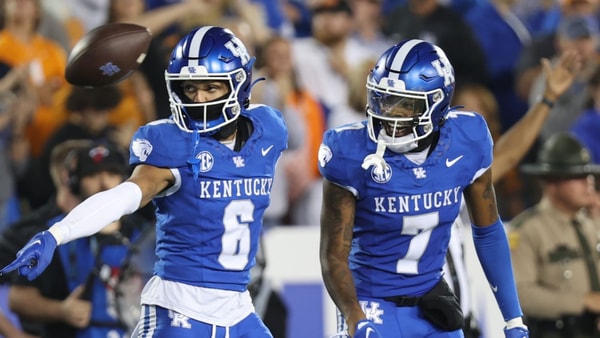
Discuss This Article
Comments have moved.
Join the conversation and talk about this article and all things Kentucky Sports in the new KSR Message Board.
KSBoard